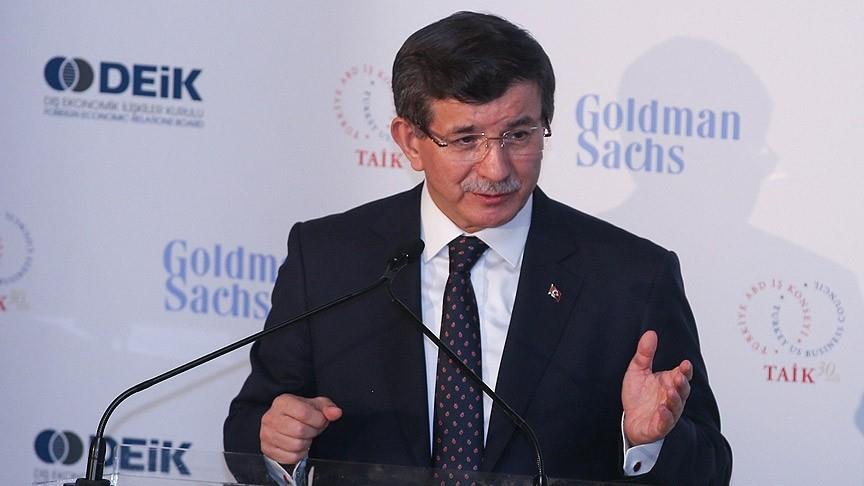
NEW YORK
An unjust global economic order is at the root of the refugee crisis occurring across Europe and elsewhere, Turkish Prime Minister Ahmet Davutoglu said Tuesday.
Davutoglu was speaking at the Seventh Turkey Investment Conference in New York, organized by the U.S. investment bank, Goldman Sachs, and Turkey's Foreign Economic Relations Board (DEİK).
"Those people who cannot find job in their countries, they want to go to advanced economies to have a better life," Davutoglu said, referring to asylum seekers and refugees desperate for entry into EU.
Europe is facing its biggest refugee crisis in decades, with thousands of asylum seekers from Middle Eastern and African countries trying to flee war and persecution.
The continent has seen more than 440,000 arrivals by sea so far this year, majority of them Syrian refugees, according to the UN. Nearly 3,000 people have died or gone missing trying to cross the Mediterranean since January 1.
While emphasizing the unfair distribution of wealth and resources, Davutoglu said the amount of electricity consumed in all sub-Saharan Africa is almost equal to that consumed in New York City.
"This is an alarming signal," he said, adding that economic crises also bring about social and political crises for nations.
In the face of a world full of conflicts and injustice, cities and civilizations rise in the most difficult times of history, Davutoglu said.
"For long term perspective, if you want to feel the pulse of history, look at cities, not countries only," he said.
He said that cities that were a center of attraction as regional capitals in recent history -- such as Athens, Cairo, Baghdad and Damascus -- were now in decline due to conflicts and economic crises.
"There is only one city rising like a star in Europe. Comparatively, the most attractive city in Europe today, as a rising city, is Istanbul," he said, citing major infrastructure, transportation and energy investments ongoing in the city, including the construction of the world's biggest airport.
"Those who want to invest, not only invest in countries, invest in cities," he said. "From Istanbul, you can project what the future of Turkey [will be]. We will make Istanbul one of the most attractive financial centers."
He said that cities like Baghdad, Damascus and Cairo share similar geographical advantages like Istanbul, but "what was absent is democracy, rule of law, visionary leaders and strong political will".
Calling democracy "a source of power", Davutoglu reassured investors that there would be no ambiguity regarding Turkey's economic outlook and policies following the upcoming general elections.
The November 1 polls will take place in Turkey nearly five months after an inconclusive election in June 7 resulted in no party winning an overall majority.
The Justice and Development (AK) Party led by Davutoglu came first in the June election, securing the largest number of votes -- 41 percent -- to claim 258 seats in the Turkish Grand National Assembly, 18 short of a simple majority.
"This time there are two options: either one party government by us, most probably, or a coalition government led by us. The continuity of political stability will be there," Davutoglu said.
Anadolu Agency website contains only a portion of the news stories offered to subscribers in the AA News Broadcasting System (HAS), and in summarized form. Please contact us for subscription options.

